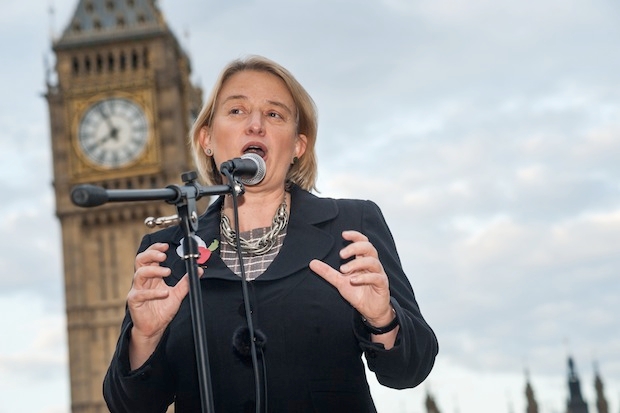Who benefits from Ofcom’s daft draft ruling that the Greens not be listed as a ‘major party’ for the General Election? Well, though the Greens are cross and have warned about the ‘damage it risks doing to British democracy’, they must know that this will help cement their credentials as an anti-establishment party. Nothing quite like a ruling shutting you out from having the same number of party political broadcasts as the major parties to make your supporters feel as though the Establishment is out to get you. And that sort of feeling is good for attracting supporters. It certainly worked after the broadcasters decided they would exclude the Greens from the television debates: the party’s membership shot up.
Though they are annoyed, they must also know that with greater coverage comes great scrutiny, and the Greens don’t much like being asked about how things are going for them in Brighton (Tim Stanley gave us an idea in the magazine recently). They would also need to explain some of their policies that might put off voters who are supporting them not because they think a citizens’ income is sensible, but because they are an alternative to the mainstream parties.
But it doesn’t just benefit the Greens, who have been building support with very little media coverage and with a leader who lacks charisma and oomph. It also benefits Labour and the Lib Dems – and particularly Labour, but in a different way. The Greens are the only party campaigning against austerity in any meaningful way, and they are lapping up disaffected leftish Labour types who feel their party has conceded too much to the Tories already. Having Natalie Bennett, no matter how boring, presenting an alternative left-wing agenda to Miliband will damage him because refusing the Greens major party status does mean they will not be interviewed as often and their candidates don’t have to be invited to be featured when a broadcaster visits a constituency. But Labour can’t relax too much, given the Greens continue to build support without much national coverage now. The Ofcom ruling does not cover the television debates, but it could influence the final decision.
And because it could influence the final decision on the television debates, this ruling could also benefit David Cameron. He wanted the Greens in the debates for the reasons set out above: they make life more difficult for Miliband. And his response to the broadcast proposals was that the Greens should be included. He could refuse to take part and therefore there would be no TV debates. And ultimately that means that the electorate doesn’t benefit, because the parties should be subjecting themselves to every level of scrutiny available.







Comments